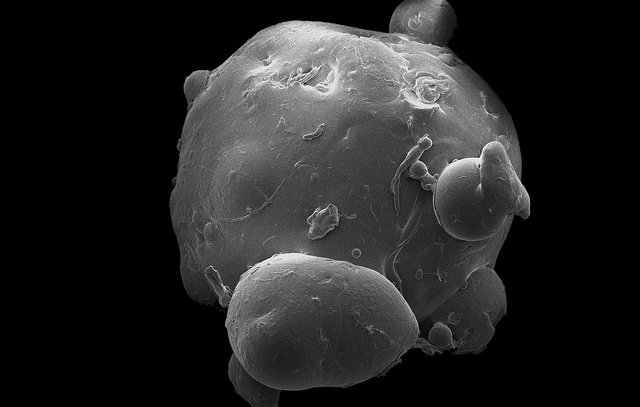This in from the office of Isle of Wight Conservative MP, Bob Seely. Ed
A ban on microbeads is likely by next summer after the Government started the process in Parliament of outlawing the products in a move welcomed Isle of Wight MP Bob Seely.
The regulation will outlaw microbeads in cosmetics and personal care products in England – stopping billions of the tiny pieces of plastic washing down the drain every year.
Bob said,
“Plastic in our seas is a major global issue with some research suggesting there will be more tonnes of this waste in the oceans than there are fish in just a few decades.
“This proposed ban – now on its way through Parliament – is part of a package of measures by the Government to crackdown on plastics that harm the environment and it’s also exploring how we can reduce the impact of plastic bottles and further turn the tide on marine litter.”
Plastics harm marine life
There is mounting evidence of the harm plastics are doing to marine life with many species now having the material in their bodies.
One in three fish caught in the English Channel contains pieces of plastic.
Manufacture could be banned by January
If passed, the law will lead to banning the manufacture of products containing microbeads by January, while a ban on their sale will come into effect in July.
The government has asked a specialist committee to review evidence on the use of microplastics in a range of products, and their chances of reaching the seas. It is also commissioning further research to better understand the impact of microplastics in the marine environment.
Review of damage by single-use plastics
Next, ministers will look at environmentally damaging single-use plastics, like bottles, with a call for evidence on taxing and charging to help prevent pollution.
This work forms a major part of the Government’s 25-year Environment Plan.
Bob said,
“The Government has been very much at the forefront of this issue and has already helped by introducing the 5p charge for plastic bags which has drastically reduced the number distributed.
“This charge has seen nine billion fewer carrier bags being used since it was introduced in 2015 – a reduction of 83 percent while £95 million has been donated to environmental, educational, and other good causes.”
Use of Statutory Instrument
The ban was laid before parliament using a Statutory Instrument called ‘The Environmental Protection (Microbeads) (England) Regulations 2017’.
Statutory instruments or SIs are a form of legislation which allow the provisions of an Act of Parliament to be subsequently brought into force or altered without Parliament having to pass a new Act. They are often referred to as secondary legislation.
Image: University of Exeter under CC BY 2.0





